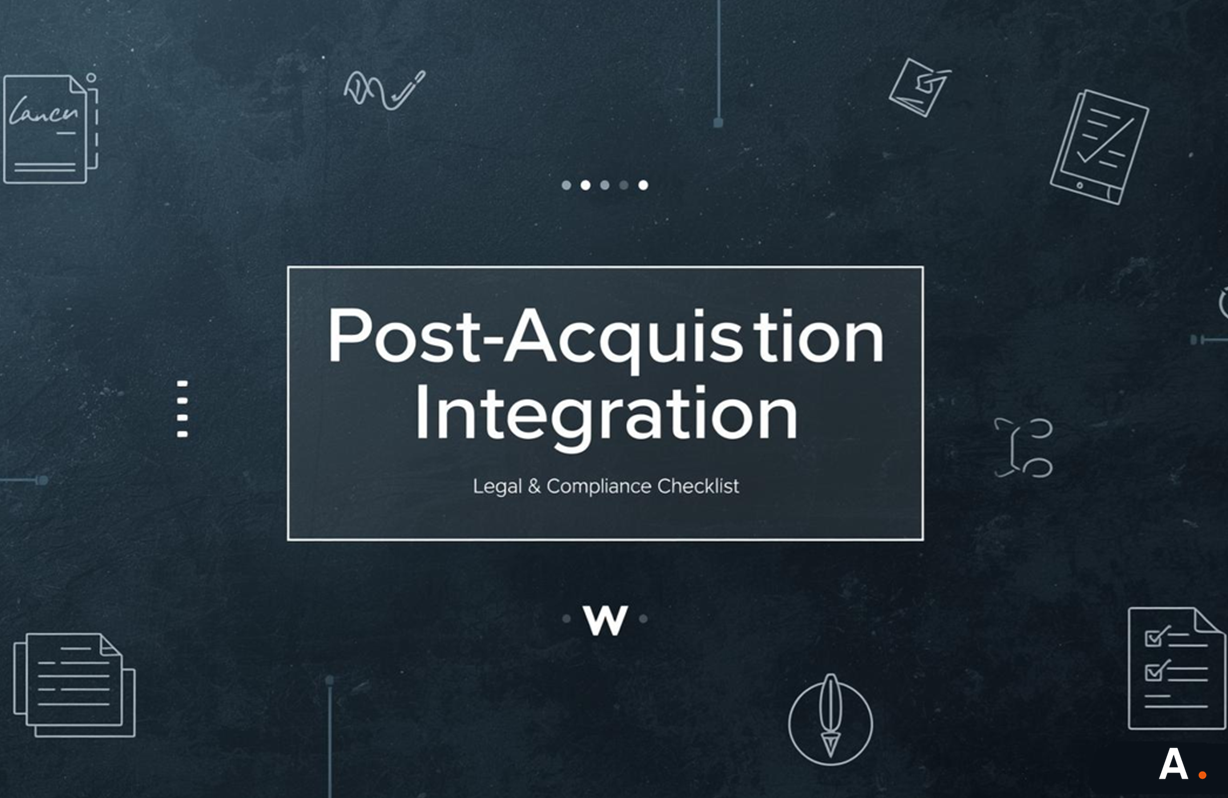Preparing the legal and tax framework for business succession or sale in France
Introduction: Begin with the End in Mind
Every business owner will eventually face the question: what happens to my business when I step back? Whether you plan to retire and hand over a family enterprise, or sell your company to investors, preparing the legal and tax framework well in advance is crucial in France. Business succession or sale is not an event to improvise; it is a process that can span years of planning. French law provides specific rules and opportunities for those who prepare: from minimizing taxes on the transfer, to ensuring continuity of contracts and workforce, to avoiding legal pitfalls during the transition.
This article focuses on practical steps to take before a succession or sale, to set the stage for a smooth and efficient transition. By organizing your company’s legal affairs and optimizing its tax situation, you can significantly increase the value received (or preserved for heirs) and reduce the risk of disputes or administrative roadblocks. Think of it as “exit planning” – an integral part of business strategy.


Getting your business legally ready for transfer
Corporate Housekeeping: Start by putting your corporate house in order. Ensure that the company’s bylaws (statuts) are up to date and reflect the current operations and shareholder arrangements. All past capital changes, shareholder decisions, and filings should be regularized. When a buyer or heir’s advisors examine the records (due diligence), they should find a clean book of minutes and registrations. If your company has undocumented shareholder loans, pending legal disputes, or non-compliance with filing obligations, address those issues proactively. For example, if there are intellectual property assets (trademarks, patents) used by the business but still held in the founder’s personal name, legally transfer those IP rights to the company before a sale. Any contracts critical to the business (leases, client or supplier agreements) should ideally be in the company’s name and valid for the future, so renew key contracts that might expire soon. These steps reassure successors or buyers that they’re acquiring a well-managed entity with clear title to its assets.
Deal with Liabilities: A vital part of succession preparation is handling liabilities. If there are outstanding litigations or regulatory non-compliance issues, try to resolve them or at least quantify and disclose them. Unknown or unquantified liabilities scare off buyers and complicate family successions (they could even cause rifts if heirs blame one another later). In France, some owners obtain an audit (by an accountant or lawyer) to identify hidden risks. Tax exposures are a common concern – e.g., if the company has had aggressive tax positions, consider requesting a tax ruling or at least make sure you have proper documentation, as any successor will inherit past tax risks. Remember, in a share sale, the buyer inherits all the company’s liabilities, even unknown ones. In a family transfer, your heirs step into your shoes regarding the business’s debts. French law does allow an heir who inherits a business to accept the inheritance “under benefit of inventory” (beneficium inventarii) to avoid unknowingly inheriting excessive debt, but in practice it’s far better to sort out the debts ahead of time.
Choosing the Transfer Method: Decide how you will transfer the business. There are two broad pathways: succession by way of inheritance/gift (if passing to family or relatives), or sale to a third party (could be external or even a management buy-out by your employees). Sometimes it’s a mix (you sell part to a partner, while grooming a family member for leadership). The legal preparation may differ slightly: for an inheritance or gift, you will focus on estate planning tools (wills, family pacts, life insurance) to align with French succession law. For a sale, you will focus on readying the company for due diligence and negotiating a sale contract.
In either case, ensure that the business structure is conducive to transfer. If you are operating as a sole proprietorship or under your own name, strongly consider incorporating it into a company before transfer. Transferring a going concern that’s not in a company is possible (French law allows selling a fonds de commerce, which is essentially the bundle of business assets and goodwill), but incorporating can simplify things. For instance, transferring shares of a company is usually simpler than assigning every asset and contract one by one. Moreover, incorporation can protect the successor from personal liability for old business debts. French tax law offers some neutrality for incorporating an existing business (you can carry over tax values, etc.), so it’s worth exploring before you transition out.
If you already have a company, consider whether the current shareholders and structure fit the succession plan. If you have multiple business lines, a split or reorganization might be wise so that a buyer can buy only what they want or so that different heirs can take different branches without conflict. French corporate law allows spin-offs, asset contributions, and mergers relatively flexibly, and many are tax-neutral under the EU Merger Directive or domestic rollover relief. For example, you might spin off real estate assets into a separate entity so that you can keep those and only sell the operating business. Or if two families co-own a company and want to go separate ways for succession, you could split the company into two via a demerger.
Employee Notification: One legal requirement not to overlook – if you are selling the business (share deal or asset deal) and you have a small or medium company (at most 249 employees), you must inform the employees of your intent to sell in advance. This rule aims to allow employees to make an offer to buy the business if they wish. The information must be given no later than 2 months before the sale contract is signed. There are various acceptable ways (in writing, in a meeting, etc., with proof of date). While employees do not have a veto or a right of first refusal, failure to inform them can lead to potential damages (up to 2% of the sale price) if they prove prejudice. Importantly, this obligation does not apply to transfers within a family (gifts or successions) – it’s only for sales to third parties. Also, it’s waived for larger companies with formal works councils since those have other consultation procedures. If you’re preparing a sale, factor in this timing – you’ll want to deliver the information and let the 2 months run (unless every employee waives the wait, which they can, allowing you to close sooner).
For a family succession, communication is still key even if not legally mandated. It may be wise to announce and discuss with employees the new leadership to maintain confidence and goodwill. France values worker relationships, and a sudden change at the top can be destabilizing if not managed transparently.
Tax planning for succession or sale
Taxes can take a big bite out of the value of a business transfer – but France offers several reliefs if you plan ahead:
Pacte Dutreil for Family Succession: As discussed in the previous article’s context, the Pacte Dutreil is arguably the most potent tool for reducing inheritance/gift tax on a business transfer to your descendants or relatives. By committing to keep the business in the family for the long term, your heirs can enjoy a 75% tax exemption on its value. To utilize this, you should put the pact in place at least 2 years before the transfer (so ideally, while you’re still actively running the company) and then follow through with the required holding period by your heirs (4 years after the transfer). The pact must cover at least 17% of the shares (if the company is listed) or 34% (if unlisted) collectively among the signatories, to show a significant stake is held. Many family businesses in France essentially institutionalize the succession by signing a Dutreil agreement between the older and younger generation well before the elder retires. If you have multiple children, the pact can include all of them as long as one of them (or another signatory) takes on the management role. This not only saves tax but also provides a framework for governance during the transition, which can be very valuable to avoid family disputes.
It’s also advisable to evaluate your company early. Engaging a professional valuation a few years before the planned transfer can help identify ways to potentially freeze or reduce the taxable value. For instance, distributing excess cash or assets that are not needed in the business can lower the company’s value, thereby lowering future gift/estate tax. Under French tax rules, minority shareholdings can be valued with discounts – so one strategy is to start transferring minority stakes (perhaps to a trust-like vehicle or directly to heirs) so that when the time comes, no single heir is getting a large, highly valued block. France doesn’t have formal family trusts (they are not recognized except for the fiducie which is rarely used personally), but you can achieve some trust-like outcomes via holding companies or family LLCs that hold the business for multiple heirs jointly.
Retirement Relief and Capital Gains: If a sale is on the horizon, look at your timing vis-à-vis retirement. As mentioned, Article 151 septies A of the Tax Code provides up to €500,000 tax-free on a sale gain if you, as a qualifying business owner, retire around the time of sale. To use this, ensure you have the status of a company director (e.g., President, CEO, Manager) and have been so for at least 5 years, and that the company is indeed an SME (generally <250 employees, <€50m turnover). You will need to provide evidence of claiming your pension rights within 2 years after the sale. Planning wise, if you’re nearing that phase, you might delay or expedite the sale to fall within the window where you can claim this relief. Note that this relief can be combined with the flat tax or you can opt for the progressive tax regime with special abatements for holding period (if shares were owned >8 years, there used to be a 65% reduction for old shareholders under certain regimes, though this interacts with the flat tax introduction – specialized advice is needed as tax laws have evolved).
For those not retiring, consider if the company could distribute some dividends before sale, which might be taxed at the flat 30% but then reduce the sale price (and thus the gain). In some cases, owners pay themselves a one-time exceptional dividend or a bonus; however, be careful, because a buyer will notice if the company’s cash is stripped and it could affect negotiations. This is more of a tactic when you have a very cash-rich company – sometimes doing a pre-sale reorganization, like the company pays out surplus cash or sells a division and pays out proceeds, can make the remaining business leaner and easier to sell (and you’ve partially cashed out via the dividend at a known tax rate).
If selling assets (like a fonds de commerce sale by a company), note that the company will pay corporate tax on any capital gain (currently at 25% rate). You can often structure an asset sale to be followed by a liquidation of the company, which might qualify remaining liquidating distributions for a favorable tax (the liquidation bonus is treated as a capital gain for shareholders). It gets complex, but the point is: plan the sequence – asset sale, then perhaps a liquidation or a merger – to legally minimize tax. Under some circumstances, selling the shares outright is simpler and more tax-efficient for the seller because of the flat tax on individuals vs double taxation corporate then individual.
Preserving Continuity: From a legal standpoint, ensure the transfer instrument (will, gift deed, or sale contract) is carefully drafted. For sales, a share purchase agreement will include representations and warranties – as a seller, you want to limit your post-sale liability, but you also need to provide enough assurance to the buyer to close the deal. If you’ve done your preparation work (addressed liabilities and organized financials), you can comfortably give standard warranties with limited risk of surprises. Often, part of the sale price might be held in escrow or subject to an earn-out; plan how that will be managed, perhaps by also preparing management team to hit targets if you’re not going to be there.
In a family handover, consider signing a family shareholder agreement once the younger generation takes over. This can set rules on things like profit distribution, decision-making, and potential future buy-outs if one family member wants out. It’s not strictly required by law, but it can prevent conflict by aligning expectations. For example, siblings inheriting a company might agree on a policy that anyone who wants to sell shares must first offer them to the others (a right of first refusal), or that certain major decisions need a supermajority. These agreements (pactes d’associés) are binding and supplement the bylaws.
Case study: An example succession plan
To illustrate, imagine you founded a manufacturing company in France 30 years ago. You’re now 60 and want to retire at 65, hopefully leaving the company to your two children, who are involved in the business, and maybe partially cashing out some value for your retirement.
Five years before (age 60): You start discussions with your children about succession. You restructure the company by creating a holding company (HoldCo) that you own, and you swap your shares of the operating company for shares of HoldCo (tax-neutral under French rollover provisions). Now HoldCo owns the business. You and your children sign a Dutreil pact at the HoldCo level, committing to keep 100% of HoldCo in the family for at least 6 more years (2 years before transfer + 4 after). You gift each child, say, 10% of HoldCo now (valued with some discount because they’re minority stakes) using part of the €100k gift tax allowance. You also update your will to ensure the business goes to them (since French law will give each child a reserved share anyway, you might decide to use the available portion to equalize things if necessary).
You check that your company’s accounts are in good shape and resolve a longstanding commercial lawsuit with a settlement, rather than letting it drag on.
Two years before (age 63): The Dutreil pact two-year mark is reached. You formally retire as CEO, and one of your children takes that role (a requirement for the pact’s continuation). You gift the remaining shares of HoldCo to your children in equal parts. Because of the pact, the taxable value of those shares is cut by 75%. The gift uses up some tax allowance and possibly incurs a reduced gift tax on the remainder; the business passes to them with minimal tax. You have also perhaps taken some cash out of the company as dividend in prior years to fund your retirement (taxed at 30%), but you leave enough working capital for the business’s needs.
At transfer (age 63): Your children now own and run the business. They must hold it 4 more years to finalize the tax exemption. They keep the pact commitments. Down the line, if they decide to sell at say age 70, they can then do so without triggering the old conditions, though they’ll face their own considerations.
In this scenario, you achieved a tax-efficient succession (Dutreil saved 75% of hefty taxes, and you utilized allowances). Legally, you ensured continuity (one child was already managing, employees saw a smooth change, and contracts remained with the same company throughout).
For a sale scenario, one might adjust by instead grooming the company for an external sale: cleaning it up, then around retirement age, selling shares to a buyer and using the €500k retirement exemption and flat tax for the rest.
Conclusion
Preparing a business for succession or sale in France involves a combination of legal diligence and smart use of tax provisions. By addressing corporate, contractual, and regulatory matters ahead of time, you make the business more attractive to successors or buyers. By leveraging tools like the pacte Dutreil, retirement allowances, or favorable holding company regimes, you preserve more of the value that you worked hard to build. The French legal system, while detailed, ultimately provides pathways to facilitate these major transitions – recognizing the importance of business continuity for the economy and for families.
The main takeaway is to start early. A succession or sale is not an event on a single day; it’s the culmination of steps you can manage. Engage professionals (lawyers, notaries, accountants) who are experienced in French business transfers. They can help ensure you tick all the boxes – from employee notices to tax rulings if needed. With a solid legal and tax framework in place, you can hand over the keys of your enterprise with confidence, knowing that both you and your successor are protected and set up for future success.
About the Author :
Business lawyers, bilingual, specialized in acquisition law; Benoit Lafourcade is co-founder of Delcade lawyers & solicitors and founder of FRELA; registered as agents in personal and professional real estate transactions. Member of AAMTI (main association of French lawyers and agents).
FRELA : French Real Estate Lawyer Agency, specializing in acquisition law to secure real estate and business transactions in France.
Paris, 15 rue Saussier-Leroy, Paris
Bordeaux, 24 Rue du manège, 33000 Bordeaux
Lille, 40 Theater Square, 59800 Lille

This article is provided for general information only and may not reflect the most recent legal or tax developments. It does not constitute legal advice. Please contact us for personalised guidance before making any decision.




